West Plains Community Garden

Virginia “Ginny” Henderson, president of the garden committee at West Plains Community Garden, and Dawn Hicks, health educator with the Howell County Health Department, are enthusiastic about community gardening, to say the least. Recipients of a Gardening Know How sponsorship in 2021, they work to ensure that the residents of their low-income food desert community have access to fresh food.
With a seemingly endless supply of energy, Dawn pioneered several programs in the community, including working with parents on the WIC program. She created Eating Local Foods (ELF), a voucher program for low-income mothers to use at the local farmers' market. Among many other health-related initiatives, Dawn, with the help of local food activists, recruited local support to form a community garden.






History
In 2009, a group formed to explore the idea of a community garden. The group included people from the local health department and the extension office. They sought, and the city approved, an area that was formerly residential but located on a creek that repeatedly flooded. Homes were removed, and the property was transformed into a park, with ground for the community garden broken by horse-drawn plow. The city ran water lines for spigots and the initial planting took place in 2010. Since then, with the help of AmeriCorps Teams, 3 railroad car-sized loads of Bermuda grass were removed. Thirty-six framed beds, 4'x22', surrounded by ADA-compliant pathways, were built. In 2017, a 1000-year flood wiped out the Garden, but it has been built back over time to include a security fence and covered tool storage.
Gardening Together
The garden's design is formatted in what the British call the “allotment” system, meaning that members rent their own space and care for it from beginning to end, growing their own food and controlling what happens to it, whether used privately or donated.
The garden is located in an impoverished part of West Plains, which itself sits in the Delta Region of the United States. Many residents have no easy access to grocery stores or the finances to buy food, thus there is a considerable level of food insecurity. It's a relatively small town; and the garden site is within 5 blocks of apartment complexes housing low-income families and disabled residents. Many visit the garden on foot or via wheelchair. Each member has a key to the garden's gate, and there are beds on legs to accommodate those who need them.
Some residents have come to West Plains from the Ukraine and surrounding areas of Eastern Europe and Russia, and in many cases still have relatives there. The community garden offers the opportunity to grow familiar foods. During a typical summer, the garden yields potatoes, both sweet and white, cucumbers, onions, garlic, green beans, tomatoes, pumpkins and herbs. Also growing well are melons, berries, okra, black-eyed peas, cucumbers, eggplant, zucchini, salad and cooking greens, and corn.



Kids Gardening
The Garden and the local Boys & Girls Club have joined forces to promote healthy eating and a healthy lifestyle for Club members. The Club operates from an old schoolhouse just a few blocks from the Garden. On Friday mornings in the summer, Club Members visit the Garden to tend their own spaces and help with chores. The Garden helped establish a seed-starting room back at the Club so that Club members can experience the entire cycle - planting a seed, transplanting the seedling at the Garden, then tending and harvesting the results. Working in the seed-starting room and coming to the Garden have become favorite activities for many Club members.
Gardening tips, videos, info and more delivered right to your inbox!
Sign up for the Gardening Know How newsletter today and receive a free download of our most popular eBook "How to Grow Delicious Tomatoes."
Busy Gardeners
There are plans in place for developing a Mason bee system and making improvements to the dedicated insectary bed planted with native perennials to attract beneficial insects. They are always working on improving the soil and have a booth in March at the annual Home & Garden Show where people can apply for a plot.
Gardening Know How is happy to support this active, dynamic garden, and we applaud people like Ginny Henderson and Dawn Hicks for their hard work and enthusiasm that helps it grow and thrive.
Every year, Gardening Know How awards $1,000 to 20 different, hand-picked garden projects across the United States and Canada. If your community or school garden has a growing, unmet need for more soil, seeds, fertilizers, building materials, or even just help getting the word out about your program, we’re ready and willing to help you meet those needs. As community gardens and school gardening programs spring up all over, we’re happy to do our part to help. Click here to learn more about how to apply to the GKH Sponsorship.
Interested in learning more about school or community gardens? Visit our Community Gardening for Everyone page today.

Caroline Bloomfield is Manager of Marketing Communications at Gardening Know How since 2019. A northwest native, she has resided and gardened in multiple zones in the U.S. and is currently at home in Eugene, Oregon. Writing and editing for various publications since 1998, her BA in American Studies from Southern Maine University includes an emphasis in English. She was raised in California by avid gardeners and continues to enjoy the natural world with an appreciation for the concepts of sustainability and organic care for the planet.
-
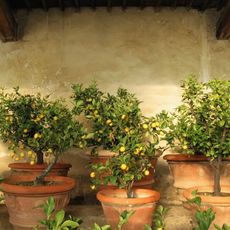 Want a Backyard Mini Orchard? Create Your Own Container Orchard
Want a Backyard Mini Orchard? Create Your Own Container OrchardEasier to care for in small spaces, a backyard mini-orchard makes sense for busy gardeners and juicy fruit is the reward.
By Teo Spengler
-
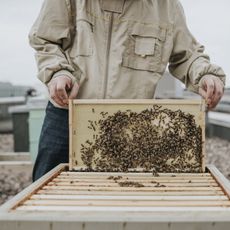 Urban Beekeeping Guide: Top Tips For Raising Bees In The City
Urban Beekeeping Guide: Top Tips For Raising Bees In The CityUrban beekeeping can be a rewarding and appreciated pastime, but first be sure it’s legal in your city and learn the ropes of beekeeping.
By Mary Ellen Ellis
-
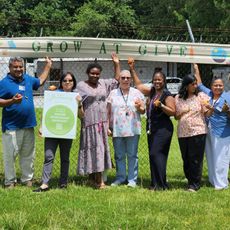 The Grow Garden at GIVE - 2022 Grant Recipient
The Grow Garden at GIVE - 2022 Grant RecipientThis alternative school in Georgia is using its garden to teach kids in all new ways.
By Caroline Bloomfield
-
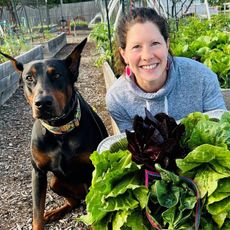 Common Ground Community Garden - 2022 Grant Recipient
Common Ground Community Garden - 2022 Grant RecipientThis Texas community garden has been getting people out of their apartments and into nature for 12 years.
By Caroline Bloomfield
-
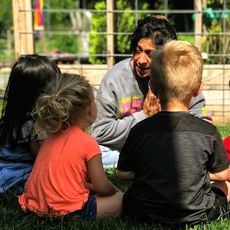 Valley Daycare - 2022 Grant Recipient
Valley Daycare - 2022 Grant RecipientBy Caroline Bloomfield
-
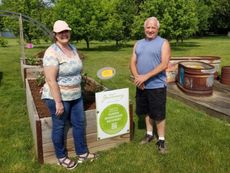 Douglas Discovery Garden – 2022 Grant Recipient
Douglas Discovery Garden – 2022 Grant RecipientBy Caroline Bloomfield
-
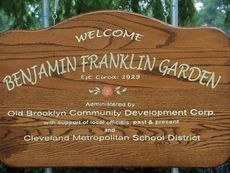 Ben Franklin Elementary School – 2022 Grant Recipient
Ben Franklin Elementary School – 2022 Grant RecipientThis hundred year old garden in Cleveland, Ohio is still going strong with a unique educational program for fourth graders.
By Caroline Bloomfield
-
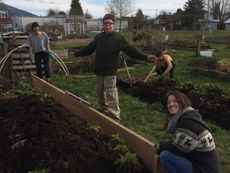 Kin Park Community Garden - 2022 Grant Recipient
Kin Park Community Garden - 2022 Grant RecipientRead about the small town in Vancouver that's bringing its people together with fresh produce and garden plots.
By Caroline Bloomfield
-
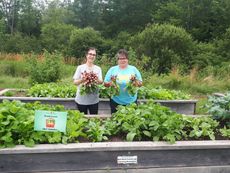 Elmsdale Community Garden – 2022 Grant Recipient
Elmsdale Community Garden – 2022 Grant RecipientThe Elmsdale Community Garden is striving to bring food security to rural Nova Scotia, one garden bed at a time. Read their story here.
By Caroline Bloomfield
-
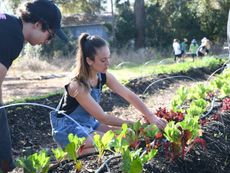 Gainesville Giving Garden - 2022 Grant Recipient
Gainesville Giving Garden - 2022 Grant RecipientThe Gainesville Giving Garden was born from a dream of freedom from food insecurity during the height of covid. Read its story here.
By Caroline Bloomfield